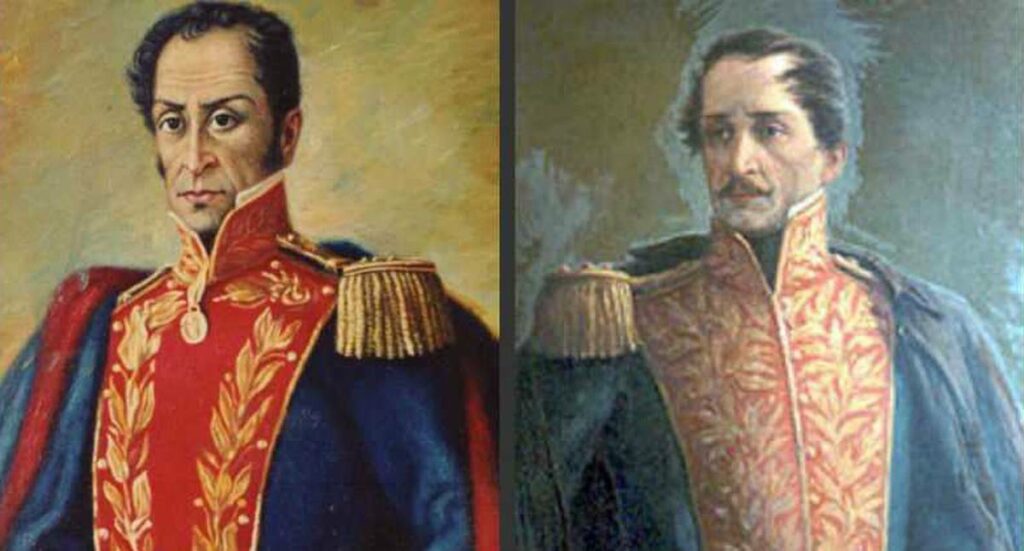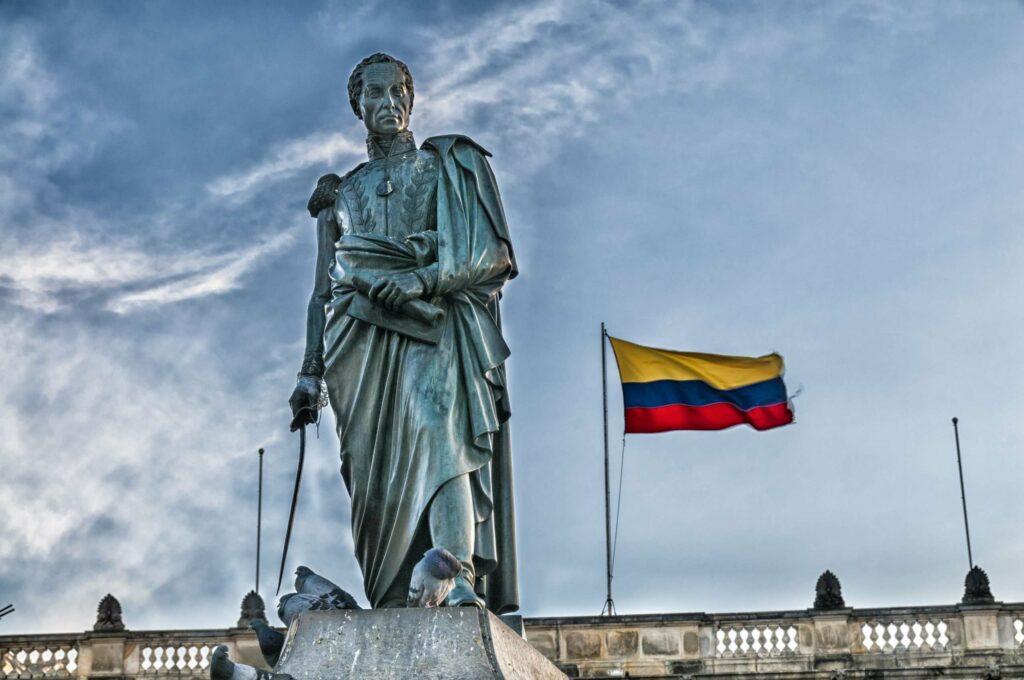Throughout Latin American history, constitutions were often not sufficient to enforce law and order, especially if we look at the period after independence. As a result, Latin American countries were born under political instability and social fragmentation.
“It is harder to maintain the balance of freedom than it is to endure the weight of tyranny” – Simon Bolivar
The controversial story of Francisco de Paula Santander and Simon Bolivar who shared the dream of a free and independent America. They went through numerous battles together and achieved the independence of New Granda on the 7th of August in 1819.

A confederation of nations was born that today comprises Colombia, Venezuela and Ecuador, known as Gran Colombia. In 1821, the Congress of Cucuta declared Simon Bolivar president and Santander vice president. However, Bolivar left Gran Colombia to complete his expedition; he thought that all Spanish had to be expelled from the region to avoid any attempt of insurgence to regain power. The departure of Bolivar implied that Santander would take a significant role in governing the just liberated territory. To summarize, while Bolivar liberated, Santander was trying to organize the newly liberated regions.
Santander aimed at improving the economic situation as the region was highly impoverished by the wars. He promoted industry, agriculture, mining and education. Nevertheless, at the same time, Bolivar was demanding financial support from Santander to continue with his expeditions, but getting resources from people was not an easy task, and tensions between the two began to rise.
In addition to the tension caused by the support of the independence campaign, different ideas about the future of the confederation divided these two great men. While Bolivar had the idea of a great nation organized from the centre under the command of a president for life, Santander envisioned a federalist nation where both president and militaries had limits to their powers. The iconic quote by Francisco de Paula Santander in the Congress of the Republic of Colombia exemplifies his idea for the region “Arms have given you independence, laws will give you freedom.”

The vision of Bolivar has been understood as unviable by many historians. The wars economically broke Gran Colombia, and a great part of the population lacked primary education. Although the land was rich in products, there were no infrastructures or means to export or promote them as Bolivar envisioned.
In addition, general Antonio Paez in Venezuela and the Ecuadorian Juan Jose Flores were not satisfied with the way Santander was handling the economies in Santafe de Bogota. Commanders of the respective territories wanted to maintain power in the regions and promote their vision of how their countries should develop further. Bolivar’s vision was continental, while Santander, Paez and Flores pushed for a more regional model. In any case, neither the central nor the federalist model would have worked.
In the last day of his life, Simon Bolivar wrote “Not having solved our differences with Santander has hurt us all.”
The story of the relationship between Francisco De Paula Santander and Simon Bolivar transcends history. The duality has marked the continent until today in a very sublime way. The dilemma has remained for us to solve, where to trace the line between freedoms and order. Sometimes the freedoms are exceeded, but also the excess of laws slows the advance of the societies.
Ti potrebbe interessare anche: Dati Covid falsificati in Sicilia, si dimette l’assessore alla Sanità Ruggero Razza